- To encourage under-represented groups to consider Higher Education as a real option and provide access routes and post entry supports.
- To embed accessibility and diversity issues into the culture of the University, thereby influencing the development of inclusive policies and practices
- To widen participation so that all groups in Irish society are fully represented in the student population
- To coordinate a range of supports that promote independence and help students reach their full academic potential
- To work with the University so that students with specific access and support needs are treated equitably
The groups that MAP supports include students with disabilities, students who are HEAR eligible, mature entry and QQI entry students. MAP students comprise 24.1% of the overall MU FT UG student body and MAP entrants comprise 28.8% of all new UG entrants.
The 4 Pillars of MAP are:
Community Outreach
The Maynooth University Access Programme (MAP) runs a programme of activities aimed at removing barriers to progression to higher education. MAP's initiatives create realistic expectations for educational progression among schools, parents, adult learners and communities who historically do not access higher education. These initiatives are a blend of inreach and outreach and support the University to meet its own, and national, targets for widening participation. The development of the outreach programme relies on key relationships with education providers and communities as well as with key University partners.
On Campus
All MAP Staff are engaged in the provision of information, advice and guidance to potential students through participation in University Open Days, Information Seminars, HEAR and DARE Advice Clinics and Adult & Community Education open evenings. MAP also presents at University-run events throughout the year such as the International Day of People with Disability.
Off-campus
MAP Staff also participate in education fairs and exhibitions in various locations held off-campus run by the University or by schools, colleges of further education or community groups. These include Higher Options (National), Better Options (National), Unemployment ‘Pop-Up’ Information Fairs (Local Partnerships), Adult Education Fairs (Dublin region and local community groups), and schools-based information seminars and fairs.
Visits to schools and adult education providers
MAP staff visit DEIS link schools, Colleges of Further Education, Adult Education Centres, VTOS Centres, etc. providing information on University courses, application and selection processes and supports.
Campus Visits
MAP encourages and facilitates visits to the University from groups or individuals at any time during the year. During these visits potential students/groups meet with relevant MAP staff and take tours of the campus.
Publications and web-based information
MAP staff contributes to University publications and produce handbooks specifically for our target groups such as the Mature Student Handbook, Disability Handbook and the Supporting Your Son or Daughter handbook for parents. The Office maintains and updates its own web pages and contributes generally to the University website.
Science Practicals

The Maynooth Access Programme and the Science Faculty work together to promote science education and progression to higher education through the Science Practical Days offered to 6th years from second level schools. The Science Practical Days give students a chance to gain hands on experience of scientific practical work and a taste of the higher education student experience. MAP offers places on the Biology, Chemistry and Physics Practical Days to students from linked schools and provides bus transport.
Computer Science Camp

MAP-linked schools are invited to select 10 students aged 14–16 years to attend this 2 week Computer Science summer programme. Students may attend for 1 week or 2 weeks. The programme is coordinated by the Maynooth University Computer Science Department and is designed to provide young people with an insight into computer programming and careers using computers in a fun and interactive way.
College Awareness Week
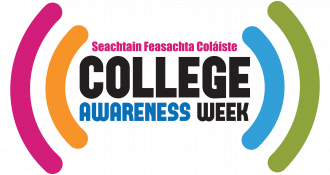
As part of College Awareness Week, the Maynooth University Access Programme organises events for students, parents and teachers to provide practical information on how students are supported in college and advice on assistive technology and managing academic workloads.
Mathematics Support Centre Drop-In Sessions for Second Level Schools
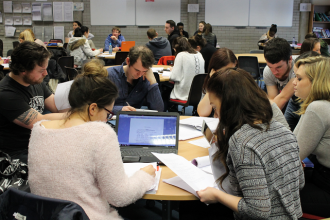
Pathways to University
A key area of the work of the Maynooth University Access Programme (MAP) concerns the creation and development of flexible pathways to third level education for our target groups. MAP staff contribute significantly to the development of national pathways for school leavers and students with disabilities through HEAR and DARE and to the Maynooth University mature student entry route.
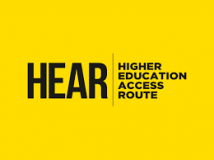 |
The Higher Education Access Route (HEAR): This is a college and university admissions scheme which offers places on reduced points and extra college support to school leavers from socio-economically disadvantaged backgrounds. HEAR Applicants must meet a range of financial, social and cultural indicators to be considered for a reduced points place and extra college support. |
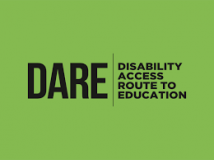 |
The Disability Access Route to Education (DARE): This is a college and university admissions scheme which offers places on reduced points to school leavers with disabilities. DARE is for school leavers who have the ability to benefit from and succeed in higher education, but who may not be able to meet the points for their preferred course due to the impact of a disability or ongoing illness. |
|
|
The Mature Student entry route: This admissions route is for people aged 23 or over who may not have achieved their full potential in previous education or who have been out of education for some time. Applicants apply through the CAO. All Maynooth University courses are open to mature applicants. The selection processes comprise of either interview only or written assessment/interview. The selection process involves referral to mature summer courses in academic writing and mathematics, where required. |
 |
Maynooth University Foundation Certificate Programmes in Science and Engineering: Maynooth University offers students the opportunity to prepare academically for a career in science/engineering through its Foundation Certificate programme in Science/Computer Science at Level 6 on the National Framework of Qualifications (NFQ). This specific pathway for mature students was developed by the Maynooth Access Programme which is also involved in the recruitment and selection of students onto the Foundation Programme. |
| Additional Pathways | |
 |
HIGHER EDUCATION SCHOLARSHIPS FOR ADULT LEARNERS Uversity is accepts applications for its HIGHER EDUCATION SCHOLARSHIPS FOR ADULT LEARNERS that are intended to remove financial barriers so that adult learners can unlock their potential and realise their ambitions. Uversity’s scholarships provide multi-annual financial support for recipients to pursue a Bachelor’s Degree for the first time in participating third level institutions in the Republic of Ireland or Northern Ireland. Scholarships can be any subject area and will be tailored to recipients’ financial circumstances to cover some or all of the direct and indirect costs associated with higher education. Successful candidates must:
PLEASE NOTE:
Eligible candidates must submit an application via Uversity’s online system. All applications will be reviewed by Uversity for eligibility and may be shortlisted for interview. |
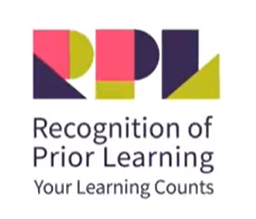 |
RECOGNITION OF PRIOR LEARNING (RPL)
If you have experience in business or industry and would like to gain a recognised qualification, you may be able to apply for recognition of your prior learning at Maynooth University. There are different RPL processes and application forms for admissions and module exemptions. All applications will require the learner to provide evidence of appropriate past learning in the form of certification and/or an extensive summary of such learning. In many cases, the application may be followed by an interview, usually conducted online. |
Transition to Maynooth
Maynooth University Access Programme (MAP) has developed a series of initiatives to enable students to make a successful transition to third level study. Early engagement initiatives, in which potential students are gradually introduced to the University and afforded the opportunity to learn vital academic skills, are designed to empower students to surmount transitional difficulties and therefore participate fully as students of Maynooth University.
Summer Programmes for incoming mature students: A number of summer courses on Academic Writing and Mathematics are provided by the Maynooth University Access Programme as part of the selection process onto degree programmes. Each year around 120-150 new mature students participate in the Academic Writing courses and 25-30 participate in the Summer Mathematics course each year. These numbers show that almost half of the new mature entrants each year take these opportunities to engage with the University and prepare for their academic journeys. The results of these courses are used in the final decision process in relation to an offer of a place.
MILO (Maynooth Inclusive Learning Online): All students are advised to log into MILO to complete a learning quiz that will identify some of the academic and wellbeing skills that could be strengthened and developed. There are a range of topics that can be completed to equip learners with an understanding of university and themselves that will enable them to succeed personally and academically.
Supports for Students
Supports developed by the Maynooth University Access Programme (MAP) for Maynooth University students are aimed at achieving equity of participation while supporting students to develop as independent learners. The support activities are designed to increase the rates of retention, attainment and progression of our students. MAP works towards the mainstreaming of much of its post-entry supports through collaboration with key University partners.
MAP Academic Advisors: Every Academic Department at Maynooth University has a designated MAP Academic Advisor responsible for addressing the support requirements of students supported by the Maynooth University Access Programme. This network provides embedded academic support for all MAP students. The MAP Academic Advisors have become a focal point, not only for supporting students, but also supporting other staff in their own Departments.
Needs Assessment for Students with Disabilities: All students registered with the Disability Office are assigned a designated Disability Advisor. A full needs assessment is offered to understand the individual impact of a student’s disability and to identify the supports and accommodations that are required to help students fulfil their academic potential.
Assistive Technology: A key support to reduce the impact of a disability and to promote independent learning is the provision of assistive technology. Educational technology assessments are recommended to identify the most appropriate technology and training supports.
Student Central: is an academic support programme for students with significant learning needs. Students who typically avail of this supports include students on the Autistic Spectrum, Attention Deficit Disorder or issues such as depression or severe anxiety. Student Central is tailored to meet the individual needs of the student, with the objective of improving academic outcomes and meeting the demand of his or her course. On-campus support is provided by an Assistant Psychologist who has access to the network of supports in Maynooth and a multidisciplinary team in the National Learning Network.
Examination Accommodations: Examination accommodations for students with disabilities are identified as part of the needs assessment process. These may include, for example, extra time, a smaller venue, a scribe, a reader or the use of technology.
Educational Support Workers: Educational Support Workers provide individual assistance to some students with a disability to support their participation in university. Examples include note-taking in lectures, personal assistants and Sign Language Interpreters. Educational Support Workers are provided by external agencies or recruited and trained by the Disability Office.
One-to-One Learning Support: Some students with very significant learning needs who cannot be accommodated in group learning support may be approved for individual support to help with topics such as time management, organisational skills, essay planning or revision strategies. This support is provided on a short-term basis to help students to acquire the academic skills to become more independent in their learning.
Additional Academic Tuition: Some students registered with the Disability Office may be approved for extra academic tuition where the impact of their disability has prevented the student from fully participating in their subject or module. This is approved in consultation with the academic department.
Campus Accommodation: Maynooth University Accommodation Office reserves a number of places in campus accommodation for students with disabilities. Campus accommodation is recommended where a student’s participation and retention in university, due to the impact of a disability, would be at risk without living on-campus.
School Placement Planning: The Disability Office, in collaboration with the Education Department and Froebel Department of Primary and Early Childhood Education, has developed a placement planning process for students with disabilities on teacher education programmes. A range of supports and accommodations are provided to ensure that the school placement component is inclusive of the individual needs of students with disabilities.
University Initiatives Supported by MAP
LIST (Library Information Skills Tutorials): this programme aims to assist students with various information literacy topics ranging from Library Databases to mindmapping using campus-based online software. Certificates of Attendance are issued to participants. The Access Office delivered sessions on access to educational technology as part of this mainstream programme. MAP also funds essay writing seminars for LIST.
Academic Support Centres: Maynooth University has mainstreamed academic support centres for mathematics, computer science, experimental physics and academic writing. Interactive online resources form a key part of the supports offered in the academic support centres. The centres are delivered by the relevant academic departments and the Maynooth University Access Programme contributes some financial support and guidance to these centres.
Student Assistance Fund: The SAF provides financial support to students who are in significant financial difficulty and whose participation at university would be at risk without support. The Fund is best described as a contributory payment which helps students meet some of the extra costs associated with being at university. It is designed to support students from socio-economically disadvantaged backgrounds with ongoing needs for financial support and for students experiencing exceptional financial difficulties.

The Student Assistance Fund (SAF) is co-funded by the Irish Government and European Union under the European Social Fund Human Capital Investment Programme 2014-2020.

